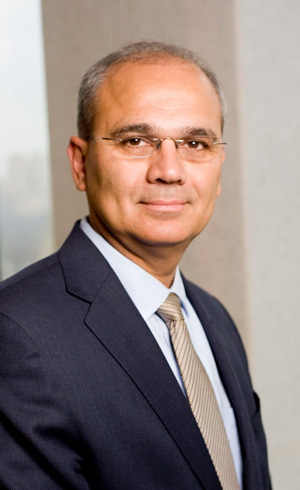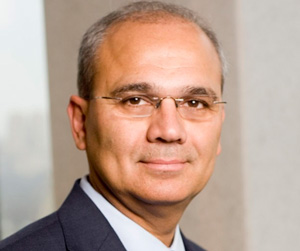
BY ZACH WILLIAMS | A state investigation into the finances of The Cooper Union may cost college President Jamshed Bharucha his job.
The school’s board of trustees voted three weeks ago in favor of declining to renew Bharucha’s contract once it expires next year, conditional on Attorney General Eric Schneidermen ending his probe into the East Village institution, the Wall Street Journal reported on April 9. Whether such a deal will be reached remains to be seen. But board members told the W.S.J. that the offer could smooth negotiations, as well as possibly assist in resolving the ongoing lawsuit challenging the school’s implementation of tuition last fall.
A Cooper Union spokesperson did not respond to a request for comment.
Bharucha has been a top target of student, alumni, faculty and community advocates for a tuition-free Cooper Union ever since he began pushing for tuition after becoming president in 2011. But some fear his ouster could merely create another power struggle at the college between “Free Cooper Union” supporters and board members who believe tuition is needed for the school’s fiscal stability.
Nonetheless, many welcomed the news that Bharucha might leave in the near future.
“I’m pleased that Cooper Union’s board of trustees has taken a positive step by offering to seek new leadership,” state Senator Brad Hoylman said in an April 13 statement. “Now the trustees should select a president whose goal is to return the college to fiscal solvency and Peter Cooper’s original intention of providing a higher education ‘open and free to all.’ ”
Alumni, meanwhile, took to social media — including the Save Cooper Union Facebook page — to discuss the latest development. More leadership changes should be made, but Schneidermen needs to consider how his involvement in the tuition battle will affect the school moving forward, Brian Rose posted on the Facebook page.
“The only way for this to play out in a positive way is if the attorney general steps in, replaces the board, and someone is appointed president who is not just a careerist, but someone of prominence who would be willing to take the job on as a public service,” Rose wrote. “We need to support the AG in what he’s doing, but at the same time make it clear that the responsibility for fixing this mess starts with him.”
In his fifth year at the school, Bharucha has continued to pursue its reinvention, which includes expansion of academic programs and the school’s brand as additional means to reaching a balanced budget by 2019. He struck an optimistic tone in a March report on the school’s current situation. His opponents charged in a rebuttal that the new academic majors were hastily organized and actually dilute academic quality.
The board’s vote came just days after the school administration backed away from a planned increase of fees for students taking more than 19.5 units per semester. Bill Mea, Cooper’s vice president for finance and administration, said in an April 1 statement that the time was not right for making such a move.
Some critics of the school’s administration accused board members of leaking the decision on Bharucha’s contract to the press because they opposed the move. An offer by Bharucha to resign before the end of his term could result in a hefty buyout, some said.
Initial reports of the vote were made to the media anonymously by board members, but Daniel Libeskind soon went on the record. Critics said that Libeskind was applying a double standard when it comes to speaking to the press, since several months ago he criticized alumni representative Kevin Slavin for speaking publicly about board deliberations.
While his own future remains uncertain, Bharucha defended his record as college president in an interview with The New York Times. The implementation of tuition has been a vital step in saving the school from fiscal catastrophe, he said in the April 10 article.
“I have no regrets about taking the job or about the leadership that I have exercised,” he said.




































